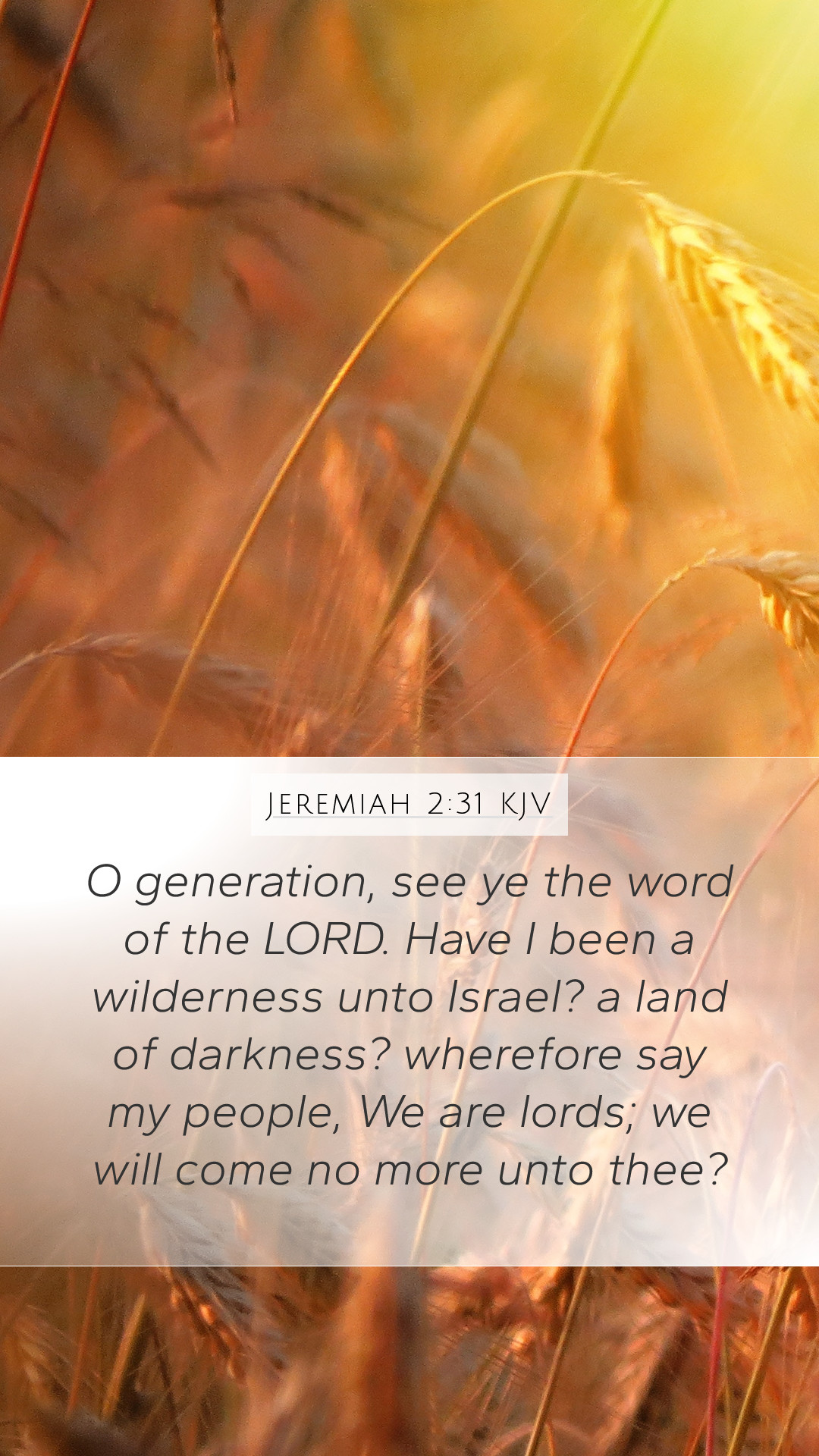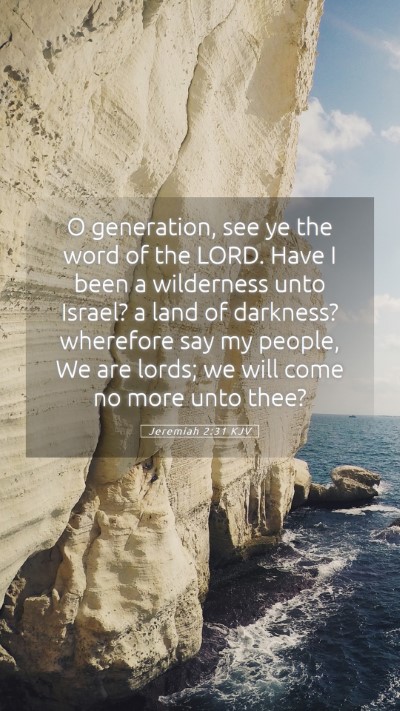Understanding Jeremiah 2:31
Bible Verse: "O generation, see ye the word of the LORD. Have I been a wilderness unto Israel? a land of darkness? wherefore say my people, We are lords; we will come no more unto thee?" (Jeremiah 2:31)
Summary of Meanings
In this poignant verse from the prophet Jeremiah, a message of profound despair and frustration is conveyed. The Lord, addressing the people of Israel, highlights their estrangement from Him despite His continuous provision and care. This text encapsulates key themes of abandonment, accountability, and the dire consequences of forsaking divine guidance.
Insight from Commentaries
- Matthew Henry: Henry interprets this verse as God’s lamentation over a people who have rejected Him. He emphasizes that God has not forsaken Israel but it is they who have wandered astray, likening their behavior to that of a rebellious child. He highlights the irony of their claim to autonomy ("we are lords"), which ultimately leads them deeper into spiritual darkness.
- Albert Barnes: Barnes points out the rhetorical questions posed by God, illustrating His desire for His people to recognize their folly. He notes that their statement of independence reflects a profound misunderstanding of the source of true life and sustenance. Barnes stresses that God is portrayed as a nurturing figure, and Israel’s denial of their need for him is symptomatic of their tragic sinfulness.
- Adam Clarke: Clarke examines the cultural and historical context of this passage, indicating that the imagery of wilderness signifies spiritual desolation. He interprets the verse as a plea for self-examination among the people. Clarke underlines the seriousness of turning away from God's guidance, warning that such behavior invites calamity and despair.
Thematic Insights
The overarching theme in Jeremiah 2:31 is the relationship between God and His people. The text speaks to the dynamics of faithfulness and rebellion, illuminating how these principles play out in the lives of individuals and communities.
- Rebellion Against God: The assertion by the people that they are "lords" signifies their rejection of God's authority, which can lead to spiritual and societal chaos.
- God's Sustaining Care: The imagery of God as a nurturing provider challenges Israel’s perception of their own autonomy, emphasizing that true freedom is found in submission to divine will.
- Consequences of Apathy: The passage warns against the dangers of apathy toward God, illustrating that a refusal to seek Him can lead to moral and spiritual decay.
Application for Today
This verse offers profound lessons for contemporary believers:
- Self-Reflection: Believers are encouraged to examine their own lives for signs of spiritual apathy and rebellion against God.
- Community Awareness: Just as Israel was collectively accountable, so too are faith communities today responsible for nurturing one another in faith.
- Recognizing Divine Authority: Acknowledging God’s rightful place in our lives promotes genuine freedom and peace.
Related Bible Cross References
- Isaiah 1:2-4 - a call to Israel and their rebellious nature
- Hosea 11:8 - God’s love and pain over Israel’s rebellion
- Matthew 23:37 - lamentation over Jerusalem’s rejection of God
Conclusion
Jeremiah 2:31 serves as a timeless reminder of the importance of maintaining a close relationship with God. This verse compels readers to seek God actively and remain aware of the dangers of spiritual negligence. Engaging with such Scripture enhances understanding and fosters deeper faith.
Further Study Resources
- Bible study guides for practical applications of Jeremiah
- Online Bible study tools for deeper analysis of prophetic literature
- Courses on Old Testament prophecy interpretations


